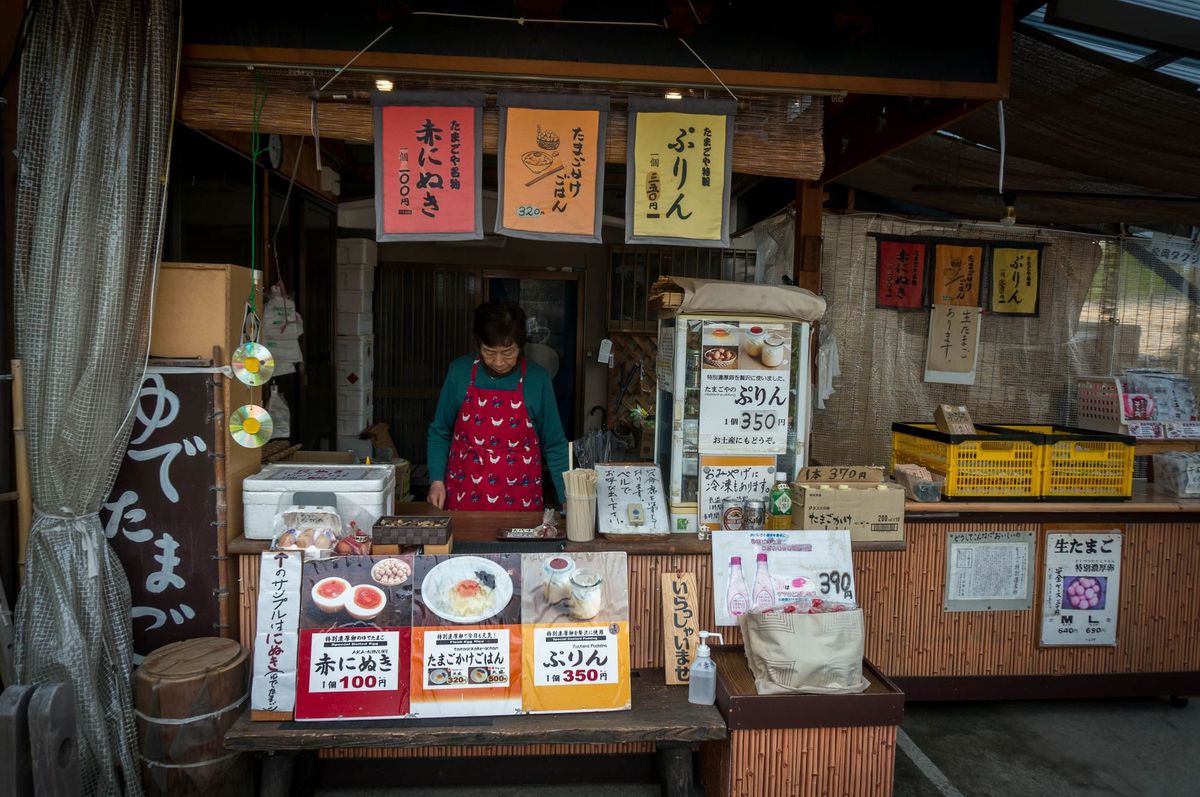Is It Safe To Eat Raw Eggs In Japan?

When visiting Japan, you’ll surely be tempted by delicious-looking meals that display raw eggs. If you are someone like me, the question "Is it safe to eat raw eggs in Japan?" will pop into your head. With the salmonella scare, it’s a reasonable question to ask!
Eggs raised and produced in Japan are safe to eat raw. Japan is an island, so there is no risk of bacteria spreading to the country that has strict control over the processes involved. Chickens are tested and vaccinated for bacterial infections daily. Because raw eggs are a staple in the Japanese diet, Japanese farmers are overly observant and cautious when it comes to the raising and distribution of eggs.
To fully understand whether or not eggs are safe to eat raw in Japan, it is a good idea to recognize the cultural differences of Japan compared to the west and the industry standard.

Rethinking Raw Eggs
If you are from the United States, Europe, or any western country, you are probably familiar with the general rule of avoiding raw eggs. The idea of eating raw eggs has been forever plagued by poor agricultural practices and salmonella outbreaks. Even the great Sylvester Stallone couldn’t normalize the idea of consuming raw eggs with his iconic egg drinking scene from the movie Rocky.
Most households nowadays will scold their kids for eating anything made from raw eggs, even raw cookie dough! Still to this day, my mom will never let me eat anything with raw eggs in it out of fear of getting sick. Because of this fear, my first year in Japan consisted of me completely avoiding the consumption of raw eggs, which unfortunately had me missing a huge part of Japanese cuisine.
But wait. If the Japanese are eating raw eggs almost every day, and seem fine doing so, what’s up? Was a part of my childhood a blatant lie? Did the Japanese and their stomachs evolve to fight off salmonella bacteria? No, not entirely. I’ve soon come to learn that the Japanese put a lot of effort into making sure their eggs and chickens remain pure. After all, the average Japanese family seems to consume an ungodly amount of eggs, and if salmonella ever crept it’s way in, Japan would have a serious problem on their hands.

The Japanese Diet
Unlike in the United States, the Japanese incorporate raw eggs into a lot of their meals. When we put ketchup on our burgers, the Japanese are putting eggs on their rice. Actually, if you ever have a traditional Japanese breakfast in the morning, you’ll definitely have an egg over rice. The foundations of Japanese cuisine can be bland, so to spice things up they’ll add eggs or soy sauce to even it out. Because of this, egg consumption is considerably high in Japan with a single individual consuming more than 320 eggs annually.
Interested in Japanese dishes with raw eggs? Here is a short list I compiled:
- Tamago Kake Gohan
- Kimchi Tamago Gohan
- Sukiyaki (dipped in raw egg)
- Natto (over raw egg and rice)
- Shoyu Zuke Ranou
- Tsukimi Udon
- Oyakodon
Interested in healthy Japanese dishes? Go ahead and read my article here!
As you can see, eggs can go with almost anything in Japan, making it a staple in their diets. This list doesn’t even scrape the top of what is made as the possibilities are honestly endless. So if eggs are widely consumed in Japan on a daily basis, what does Japan do differently to keep their eggs from becoming contaminated?

How Are Eggs Pasteurized in Japan?
To keep chickens safe from contamination, a lot of regulation goes into ensuring the safety and quality of each farm. Egg farms in every prefecture of Japan use a generational method to produce eggs. All eggs come from the same farm as their parents, grandparents, and great grandparents. This is a practice and precaution done so if an egg is contaminated, it can be traced back to the exact farm. To better control disease, farms in each prefecture are built in close proximity to each other and near major roadways.
A chicken farm in Japan isn’t like your average farm found in rural America. A Japanese chicken farm is more modernized with restrictions on who can enter. Extra precautions are taken to keep out insects, wild birds, and animals. All farmers and workers wear uniforms that they change into before entering the chicken coop. To keep chickens healthy, a special diet of feed is fed to the chickens, which helps them produce better eggs with rich vitamins.
Once batches of eggs are produced and collected, they are off to be tested. In Japan, each egg is individually washed, sterilized, and checked for imperfections like blood, dirt, or cracks. They’ll go through this process multiple times before being approved. If an egg is found with any imperfections, they’re immediately disposed of. The machinery and technology of the equipment used makes it impossible for any egg to slip through. Not only will the machinery physically check each egg, but also scan them as well to check for any bacteria.

Does Salmonella Exist in Japan?
Salmonella in Japan exists, but it’s extremely rare to come by. Experts, scientists, and farmers have always insisted that salmonella outbreaks in Japan are impossible due to how rigid the farming and cleansing process is. Japan’s Ministry of Agriculture conducts tests every 10 years to determine the frequency of salmonella bacteria infection. These tests are conducted by gathering commercial eggs from grocery stores across the country, all from different farms and distributors. Each egg is then tested for salmonella and recorded.
The latest test conducted happened in 2010 when salmonella was recorded to be in only 0.003% of the 105,333 eggs tested. A significant decrease from 0.03% in infected eggs from the previous test done in the 1990s. You can find more details about these tests here!

How Long Do Japanese Eggs Last?
The Japanese waste no time in getting eggs out to distributors. Once a batch of eggs has been approved for zero impurities, they’re instantly being loaded onto the back of a truck and sent out the same day. To completely eliminate the chance of bacteria infecting an egg and to increase shelf life, the Japanese make it a goal to get eggs distributed as soon as possible. To further add to this, the typical Japanese family will eat a carton of eggs within just a few days of buying them, which again severely limits the chance of bacterial infection. This is unlike the average American family that will keep eggs in the refrigerator for months at a time.
If you ever find yourself in a grocery store here in Japan, you’ll notice that egg cartons are a lot smaller than in the United States with only six eggs per carton. To put emphasis on the points stated above, this is done due to the idea of eating raw eggs before the risk of bacteria. Grocery stores will always try to sell off eggs a week before the expiration dates by drastically discounting them for next to nothing prices. When I want to cook eggs, I typically wait until this time to buy them up.
Restaurants with meals that include raw egg will usually get all of their eggs fresh and use them the same day. Just like fish and meat, many restaurants in Japan get their ingredients fresh on the same day to avoid safety and health violations. If you are up early enough, you will see distributors dropping off fresh food at restaurants to be used for that day. I’ve seen smaller restaurants send their employees out to get ingredients from the nearby grocery stores if they’ve run out, which in my mind eliminates the idea of owners and managers storing food for prolonged periods of time in their kitchen.

Is It Safe To Eat Raw Eggs In Japan?
From my personal experience of living in Japan, and consuming a raw egg per day for breakfast without getting sick, I can confidently say that it is safe to eat raw eggs here. The Japanese put a lot of emphasis on quality control to ensure the health and safety of consumers. With all fear aside, I personally don’t believe that there is any issue in eating raw eggs in other countries, especially in the United States. You just have to be aware of the shelf life and processing involved before eating.





